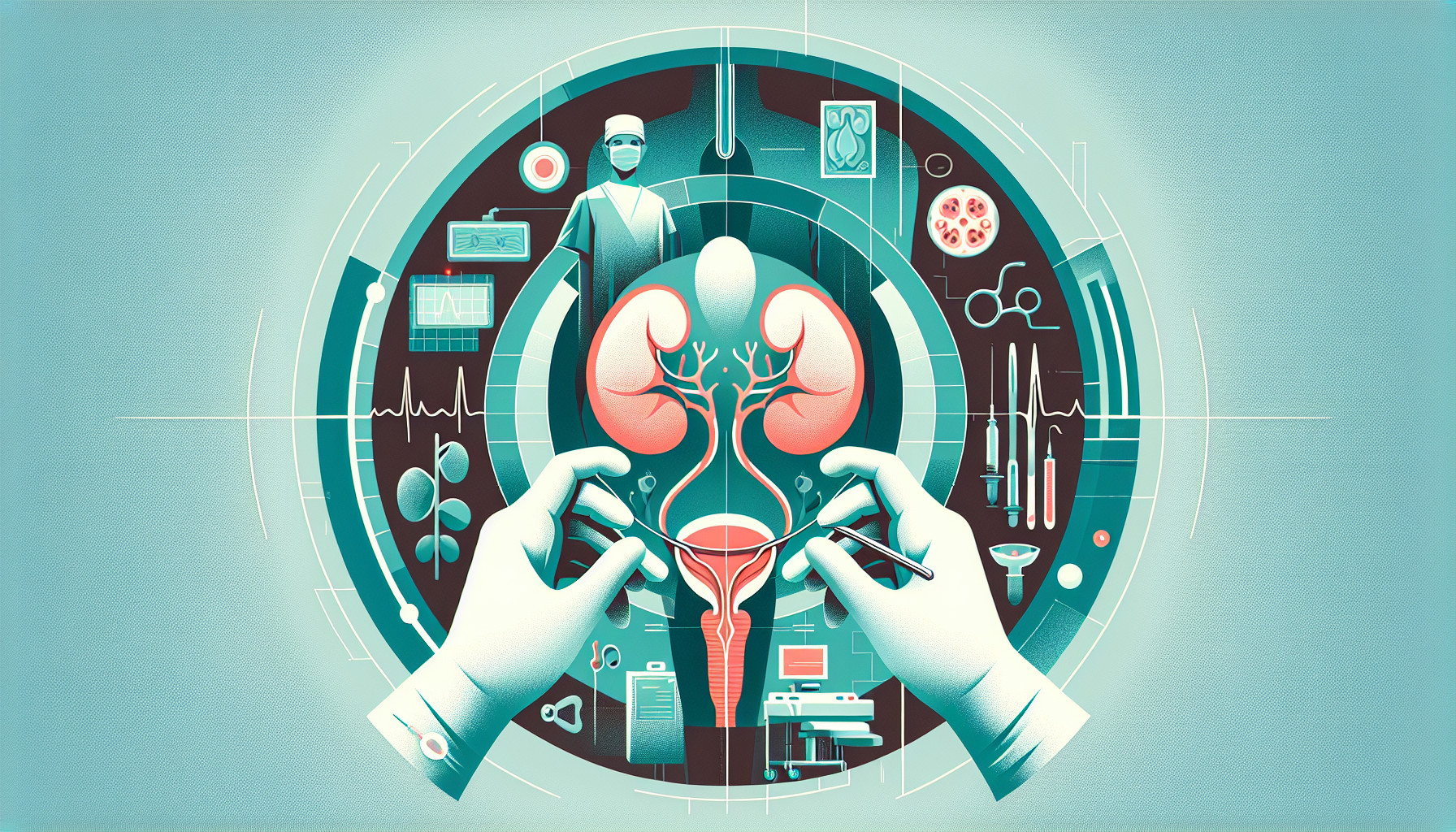Our Summary
The paper discusses a new method to address the world’s shortage of transplantable organs. The researchers experimented with transplanting embryonic kidney tissue, which helped the kidney’s filtration and fluid balancing parts mature and partially function like a normal organ. However, the limitation was that these tissues couldn’t grow rapidly in adult bodies, limiting their full functionality as an organ substitute.
To address this, the team developed a new approach by fusing embryonic bladders with multiple connections to the host’s urine-carrying tube (ureter). This allowed them to significantly increase the transplantation of embryonic kidney tissue and its integration with the urinary system. They managed to reconstruct the waste removal pathways by merging four embryonic kidneys into each bladder and integrating them with the host’s ureter.
After transplanting and integrating 20 embryonic kidneys in a specific region in rats without kidneys, the rats survived for over a month and generated approximately 50,000 kidney filters (nephrons) in their bodies. Analysis showed that the maturity of the transplanted embryonic kidneys was similar to adult kidneys, though their small size likely affected their ability to concentrate urine.
After the operation, supports helped maintain the rat’s physiological balance, including waste removal, acid-base balance, electrolyte levels, and kidney hormone levels, within normal ranges. The research shows the potential of embryonic kidney tissue as a transplantable organ system, highlighting its ability to mature functionally and provide therapeutic benefits in a dose-dependent manner.
FAQs
- What is the main goal of the novel bladder surgery strategy described in the article?
- How does the fusion of embryonic bladders with multiple anastomoses to the host ureter improve the results of metanephros transplantation?
- Did the transplanted metanephroi reach the maturity level of adult kidneys and were they able to support vital physiological functions in the rats?
Doctor’s Tip
One helpful tip a doctor might tell a patient about bladder surgery is to follow postoperative care instructions carefully, including taking prescribed medications, keeping the surgical site clean, and avoiding strenuous activities until cleared by the doctor. It is also important to stay hydrated and follow a healthy diet to support healing and prevent complications. Additionally, attending follow-up appointments with the doctor is essential for monitoring recovery progress and addressing any concerns.
Suitable For
Patients who may be recommended bladder surgery include those with bladder cancer, bladder stones, urinary incontinence, bladder prolapse, interstitial cystitis, and other conditions that affect the bladder and urinary tract. Bladder surgery may be recommended to remove tumors, treat incontinence, repair structural abnormalities, or improve bladder function.
Timeline
- Before bladder surgery:
- Patient is evaluated by a healthcare provider and undergoes various tests and imaging studies to determine the need for bladder surgery.
- Patient may need to make lifestyle changes or take medications to prepare for surgery.
- Patient meets with a surgeon to discuss the procedure, potential risks, and expected outcomes.
- Patient may need to fast before surgery and follow specific instructions regarding medications and hygiene.
- Patient undergoes bladder surgery, which can involve different techniques depending on the underlying condition, such as a cystectomy or bladder reconstruction.
- After bladder surgery:
- Patient is closely monitored in the recovery room and may need to stay in the hospital for a few days.
- Patient may experience pain, discomfort, and urinary symptoms post-operatively.
- Patient is given instructions on how to care for the surgical incision, manage pain, and prevent complications.
- Patient may need to follow a specific diet or avoid certain activities during the recovery period.
- Patient attends follow-up appointments with the surgeon to assess healing, address any concerns, and discuss long-term care.
- Patient may need physical therapy or rehabilitation to regain bladder function and improve quality of life after surgery.
What to Ask Your Doctor
Some questions a patient should ask their doctor about bladder surgery include:
- What is the reason for recommending bladder surgery?
- What are the potential risks and complications associated with the surgery?
- What is the success rate of this type of surgery?
- What is the expected recovery time and post-operative care plan?
- Will there be any long-term effects or lifestyle changes after the surgery?
- Are there any alternative treatment options to consider?
- How many times has the surgeon performed this type of surgery?
- What is the expected outcome and prognosis after the surgery?
- Will I need any additional procedures or follow-up appointments after the surgery?
- Are there any specific instructions or precautions I should follow before and after the surgery?
Reference
Authors: Kinoshita Y, Kobayashi E, Matsui K, Inage Y, Morimoto K, Yamamoto S, Iwai S, Kitada K, Iwasawa K, Saito Y, Fujimoto T, Matsumoto K, Nagamori S, Nishiyama A, Kume H, Takebe T, Yokoo T, Yamanaka S. Journal: Kidney Int. 2025 Jun;107(6):1051-1063. doi: 10.1016/j.kint.2025.02.024. Epub 2025 Mar 22. PMID: 40122339
